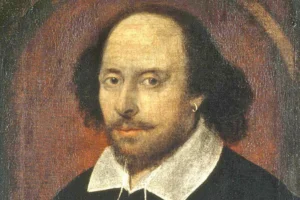“T.S. Eliot said: “Dante and Shakespeare divide the world between them. There is no third.” Hamlet speaks of the afterlife as “the undiscovered country from whose bourn no traveler returns.” Dante Alighieri (1265-1321) attempted to trace the boundaries of that country for us in his “Divine Comedy.”
[. . .]
“We see through Dante’s camera-like eye. “Inferno” focuses on unrepentant sinners afflicted in various scenes of punishment. The violent are burning, while others swim in boiling blood. We view the false flatterers of Earth—in Hell condemned to eat their own excrement. Each sinner’s punishment corresponds to sins uncorrected during his or her life. The lens then focuses on Satan, Hell’s center, “the Emperor of the dolorous realm.”
[. . .]
“Entering Purgatory the poetry too becomes brighter, more lyrical. It’s a “roseate dawn”; the planet Venus comes into view. Having brought us through Hell, Dante soothes our pain with a comforting line that in difficult times often comes to my mind—”To course o’er better waters now hoists sail the little bark of my wit, leaving behind her a sea so cruel.”
[. . .]
“In “Paradiso” the panorama is all light and perfectly ordered. Here every soul is at home, utterly happy in the celestial hierarchy.
[. . .]
“Unlike stone, a poem is alive. His “Divine Comedy” breathes as a kind of Third testament metamorphosing man into the eternal. —Patrick J. Walsh, “A Journey Through Hell, Purgatory and Heaven for the Living,” The Wall Street Journal, April 22, 2022 (retrieved March 20, 2o24)





